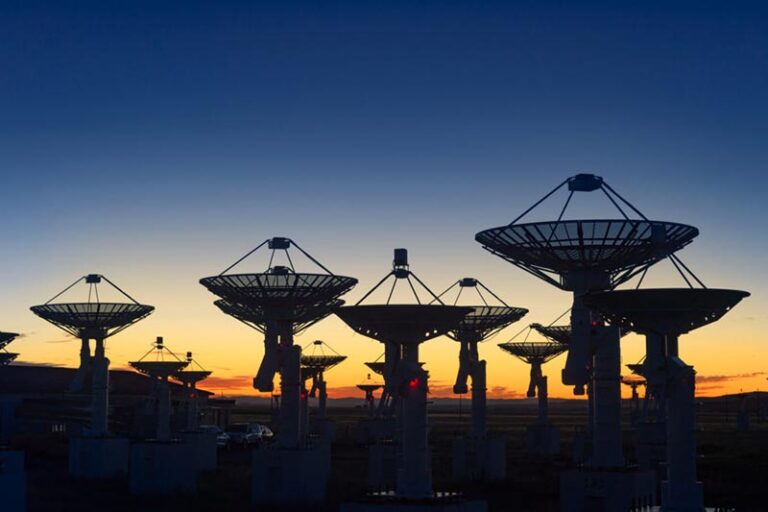With so many options for high-speed internet out there, how can you be sure that satellite internet is the right one for you? There are several factors to consider before making the plunge for high-speed satellite internet service..
Which High-Speed Internet Option Is Right for You?

The internet isn't all that confusing when you have help to make sense of it. That's why we at SatelliteInternet.com put together this resource to help you find the information you are looking for.
Comparing Internet Service Types
Satellite Internet vs.: DSL, Cable, Mobile Broadband, Fiber, and Dial-Up.
Satellite Internet
- Does not require a telephone line
- Available anywhere, including remote locations
- Uses satellite internet dish equipment
Cable
- Does not require the use of a telephone line
- Uses the same cable network as cable television service
- Is usually faster than DSL unless there is an especially high volume of traffic
- Is not available everywhere
- Number of users on a single connection affects speed
- Comcast, Road Runner, and Cox are a few examples of cable internet providers
Mobile Broadband
- Uses cell phone towers to provide wireless internet signal
- Allows you to stay connected from many wireless devices
- Communicates at the speed of light
- Usually limited data usage, data overages can occur
- Sprint, Verizon, and AT&T are examples of mobile
- Available where cell towers are
DSL
- Uses a telephone line but can run simultaneously with inbound/outbound calls
- Typically doesn't require phone rewiring
- Connection speeds vary based on location to the hub
- Download speeds typically exceed upload speeds
- Is not available everywhere
- Companies such as AT&T, Centurylink, and Verizon offer DSL service
Fiber Optic
- Uses cable constructed of thin glass strands
- Communicates at the speed of light
- Fastest internet connections available
- Is not available everywhere
- Verizon, AT&T, and CenturyLink are all providers who have fiber-optic networks
Dial-Up
- Uses phone lines to get internet
- Cannot use phone and internet at the same time
- Available everywhere
- Very slow connection speeds
- NetZero and AOL are examples of dial-up providers
Are you tired of dial-up service?
Dial-up service is fine for those who are budget-minded and very light internet users. However, dial-up service can often become tedious, as users have to wait up to several minutes at a time to logon for simple tasks like checking email, weather, directions and so on, not to mention dropped connections and tied up phone lines.
Does internet speed matter to you?
For many going from dial-up service to high-speed satellite service can be a revelation. There is a noticeable time difference in everyday activities like checking your favorite websites, sending emails, and loading photos.
Are you looking for a mobile high-speed internet solution?
For those who are looking for mobile high-speed internet solutions, satellite internet might be the best way to go. Though satellite internet services are more readily available for those in fixed locations, most major providers will consult with customers on arranging the best plan for a mobile set-up.
Are you in a rural location?
For those who live in rural regions, the local infrastructure may not support broadband options like cable, DSL, or fiber-optic services. Major satellite internet providers offer services anywhere coast-to-coast, giving many people the opportunity to experience high-speed internet at a reasonable price.
How much are you willing to spend?
For very bare-bones and basic internet use, dial-up represents the lowest part of the expense spectrum. However, for those that are willing to spend a little more per month, High-speed Satellite internet offers a faster, more reliable experience.